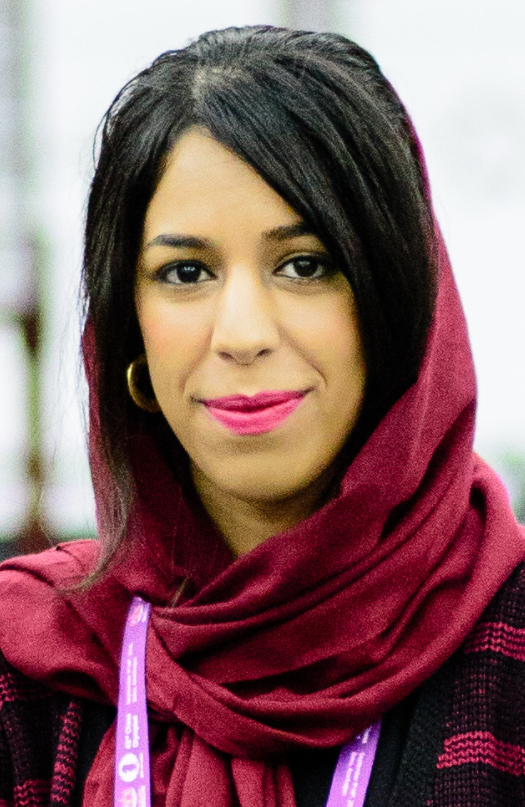September 3, 2021

Almost two years ago, Shohreh Bayat, one of the world’s top chess referees, got in deep trouble with the chess authorities in Iran when they thought she was not wearing a headcovering. Out of fear, she has refused to go back to Iran. But, now it turns out, she had another reason for fearing harm if she returned home—she is secretly Jewish.
“All my life was about showing a fake image of myself to society because they wanted me to be an image of a religious Muslim woman, which I wasn’t,” Bayat said in an interview with The Telegraph of the UK She spoke of her Jewish roots for the first time in the interview published as she awaited asylum in Britain.
Just before the interview, Bayat received a much-anticipated confirmation from the International Chess Federation that allows her to referee under the British flag.
But she has no UK work permit that would let her resume her career. Eight months after she arrived in the UK, she lives with the family of a chess player friend, waiting for her asylum application to be processed.
Born in northern Iran to a construction businessman and an accountant, Bayat said she started playing chess at the age of nine under her father’s encouragement.
A national champion at 12, Bayat, who also holds a master’s degree in natural resources engineering, embarked on a successful career as an International Chess Federation referee at the age of 25.
Now 33, she recently became Asia’s only Grade A arbiter, traveling around the world for tournaments.
In Iran, she would put on men’s clothes when she wanted to go to a stadium to watch soccer matches.
Never a believer in the dress code, her lax attitude finally caught up with her at the 2020 Women’s World Chess Championship where she was the chief arbiter.
“It was the highlight of my career,” she said of the tournament held in Shanghai and Vladivostok.
It took just one picture of her snapped earlier that day—standing by the chess board and smiling at the camera with her scarlet headscarf around her neck but not visible on the top of her head—for Iranian hardliners to declare her a public enemy.
After the match, she stopped by her hotel before dinner to check her mobile phone, since referees were not allowed to carry them at tournaments.
“My mobile was full of messages saying: ‘Please, don’t come back, they will arrest you’,” Bayat recalled in the interview. “I woke up the following day and saw that the [Iranian] Federation had removed my picture…. It was like I didn’t exist.”
That morning she went to the tournament without a head-covering. “I knew I couldn’t tolerate it any longer.”
But there was something else that Iranian officials did not know about her.
Her paternal grandmother, Mary, who moved to Iran from Azerbaijan’s capital of Baku during the Second World War, was Jewish.
“If they knew that I had Jewish background, I would never ever be general secretary of the Iranian chess federation,” she said, recalling anti-Jewish remarks she heard from chess officials.
Faced with threats at home, Bayat kept doing her job at the second leg of the tournament in Russia’s Vladivostok, brushing off calls from Iranian officials for a public apology and never receiving any assurances for a safe return.
At the end of the tournament, the Iranian referee changed her flight reservation and flew to the UK, which was the only western country for which she had a valid visa. Bayat showed up at immigration in Heathrow Airport and applied for asylum.
However, the Home Office has suspended all asylum interviews during the pandemic. The latest communication with the Home Office indicated that Bayat would get her interview by August but she never did, according to her lawyer, Adrian Seelhoff, who insists that his client’s case is “so clear cut it could be decided without an interview.”
A Home Office spokesperson told The Telegraph the agency resumed asylum interviews at the end of July and is working on the backlog of cases.
Bayat hopes to be reunited with her family and husband one day, but is unapologetic about her decision to ditch the hejab and defect: “I have no regrets.”
